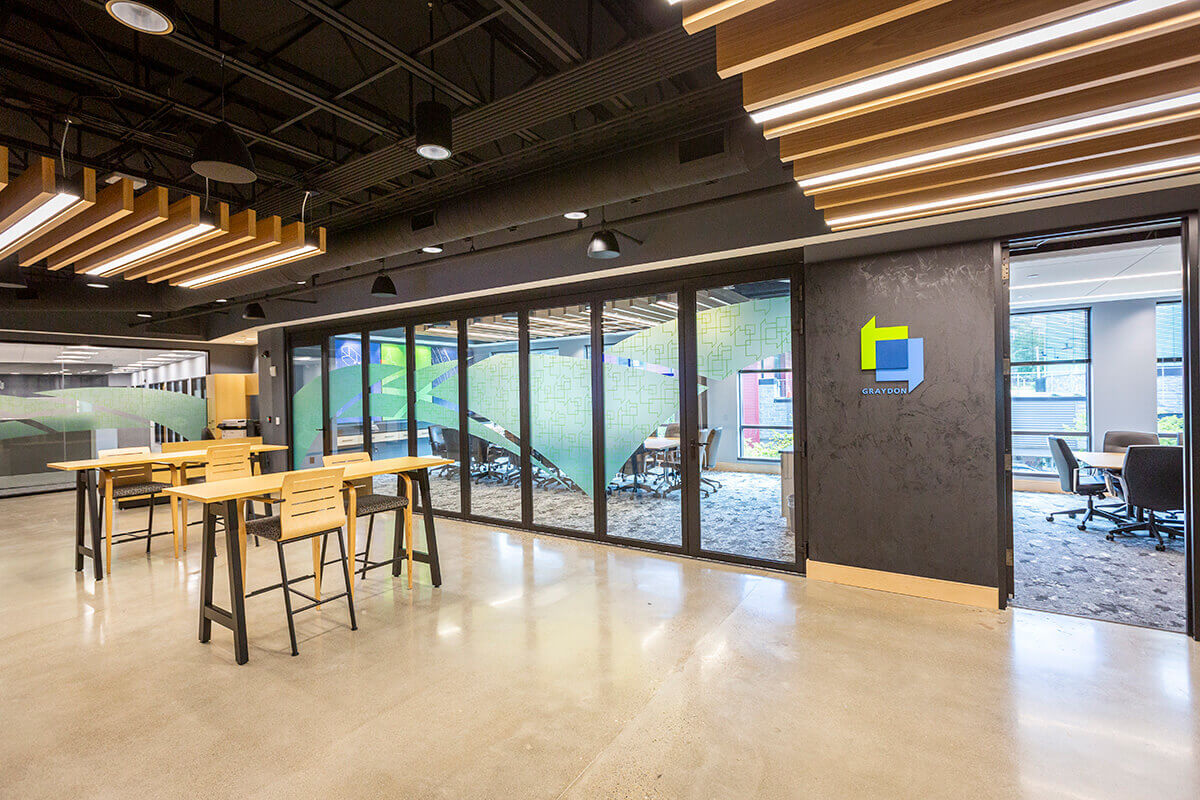As organizations embrace hybrid work models, the seamless integration of brand, culture, and values becomes a paramount challenge. Balancing the needs of remote and in-office employees while fostering a cohesive and unified workplace culture requires a strategic and comprehensive approach.
At Kolar, we are experts at connecting people, process, and place. Our unique, in-depth services through our Kolar Experience Institute enables clients to truly understand the needs of their team to create hybrid solutions that make a difference. There are 5 key elements to consider when making the change to a hybrid work environment: properly defining a foundation, leveraging your brand, cultivating a culture of inclusivity and collaboration, embracing change management, and harnessing the power of your team’s insights.

Defining the Foundation: Understanding the essence of the brand and the values that drive the organization lays the foundation for creating a consistent and compelling workplace experience for all team members, regardless of their location.
Leveraging Branded Environments: Branded environments, including office spaces, collaborative areas, and remote workspaces, are carefully designed to communicate the organization’s values, mission, and unique identity. These thoughtfully curated spaces serve as a tangible representation of the company’s culture and values, fostering a sense of belonging and pride among employees, whether they are in the office or working remotely.
Cultivating a Culture of Inclusivity and Collaboration: In a hybrid work environment, intentional efforts to foster inclusivity and collaboration are essential. Organizations need to create opportunities for both in-office and remote employees to connect and collaborate. Virtual team-building activities, cross-functional projects, and online social gatherings can bridge the gap between team members, creating a unified and engaged workforce.
Embracing Culture Change Management: Adopting a hybrid work model often requires a cultural shift within the organization. Companies often need support navigating this change by providing culture change management services. By engaging leadership, communicating the benefits of the hybrid model, and addressing concerns in a considerate and timely manner, an organization can smoothly transition to a flexible work environment while preserving their core values. Human Resources teams can leverage change management professionals to partner and collaborate on best practices for rolling out a full change management process for current and future changes.
Gathering Team Engagement Insights: Understanding the needs and preferences of team members is crucial in building an inclusive and successful workplace. Organizations can utilize employee surveys, focus groups, and feedback mechanisms to gather valuable insights from both in-office and remote team members. These insights inform workplace design decisions and strategic initiatives, ensuring that the workplace experience meets the expectations and aspirations of the hybrid team.
As hybrid work models continue to shape the future of work, organizations must adapt to create a cohesive and unified workplace that connects brand, culture, and values. Kolar Design’s expertise in branded environments, culture change management, and insights empower organizations to build a best-in-class workplace that thrives in a hybrid team environment. By fostering a sense of belonging and shared purpose, companies can create an exceptional workplace experience that strengthens their brand, culture, and values, and ultimately drives business success. To learn more about Kolar and our award-winning services, visit https://kolardesign.net/.





